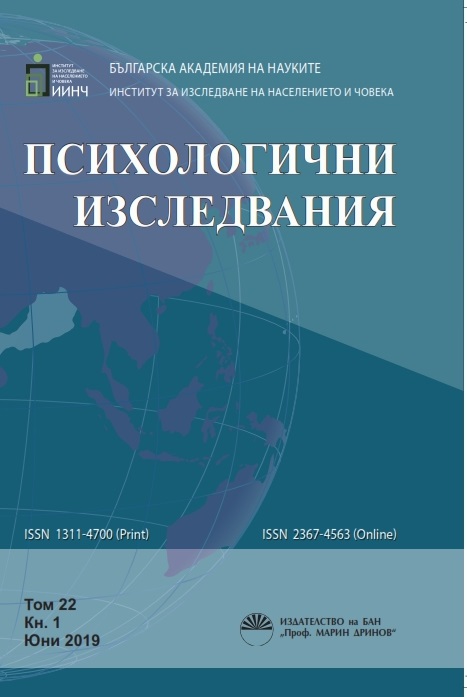Нагласи към мултилингвизма на български учители, работещи в мултикултурна социална среда
Attitudes towards Multilingvism of Bulgarian Teachers Working in a Multicultural Social Environment
Author(s): Nina GerdzhikovaSubject(s): Social Sciences, Psychology
Published by: Институт за изследване на населението и човека - Българска академия на науките
Keywords: multilingualism; attitudes; teachers; education.
Summary/Abstract: Purpose of the study: The report will present some of the data related to work in an international comparative study on attitudes of teachers to multilingualism and language literacy. Methodology: The Bulgarian survey is anonymous and covers about 255 teachers from all levels of the education system - kindergarten, elementary school, junior high school and vocational high schools. A six-tier scale is used to evaluate the claims. The data were processed by frequency analysis and one-factor dispersion analysis (ANOVA). Also, it was calculated the Cronbach’s Alpha for the scale. Data from the survey: The data are from regions where there is a compact Roma population - Northwest, Northeast Bulgaria and Sliven region. The questions relate to a common understanding of the essence of multilingualism, how many languages should be taught at school, is it important to learn several foreign languages, whether positive language learning is encouraged, etc. The data give a wealth of information about the multilingualism of teachers working directly with children and young bilinguals. Applicability: Data would be interesting to develop specific teaching strategies in multicultural classes by teachers and to consider some innovations in evaluating learning outcomes with bilingual students. Contributions: A variety of information has been collected about the attitudes of teachers working in a multicultural environment that have not so far been of scientific interest in pedagogy or pedagogical psychology. This provides an opportunity to define some innovative learning strategies.
Journal: Психологични изследвания
- Issue Year: 22/2019
- Issue No: 1
- Page Range: 133-144
- Page Count: 12
- Language: Bulgarian

